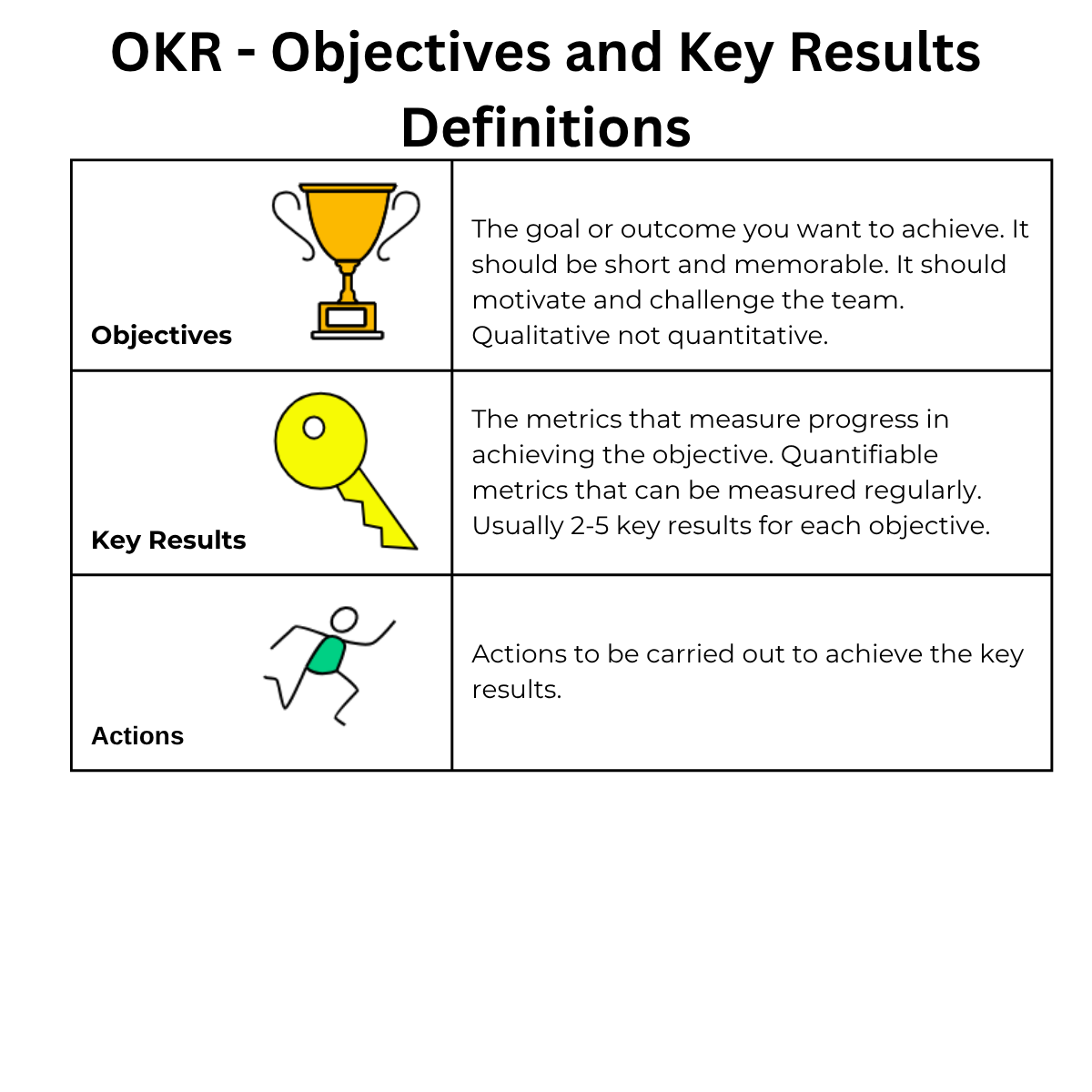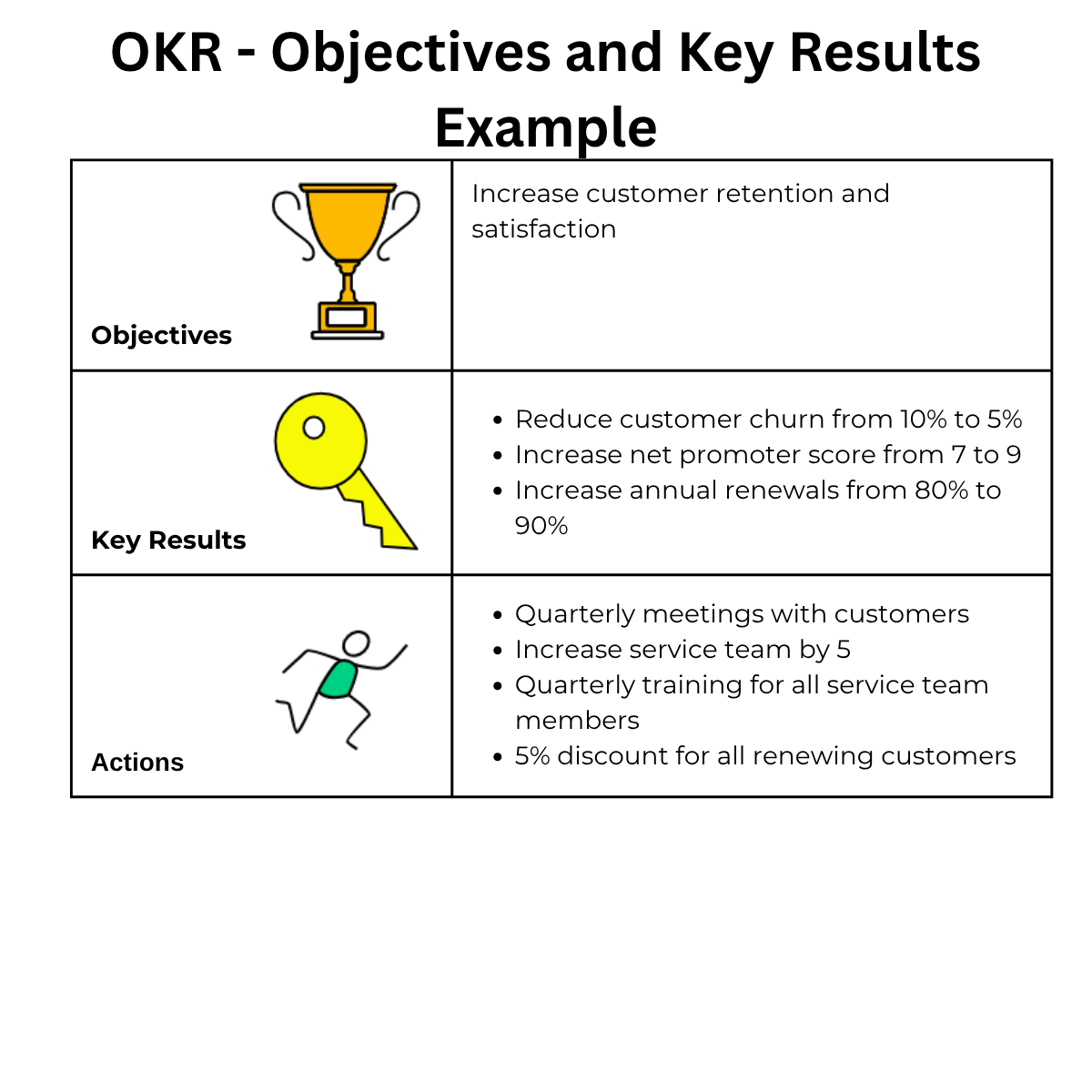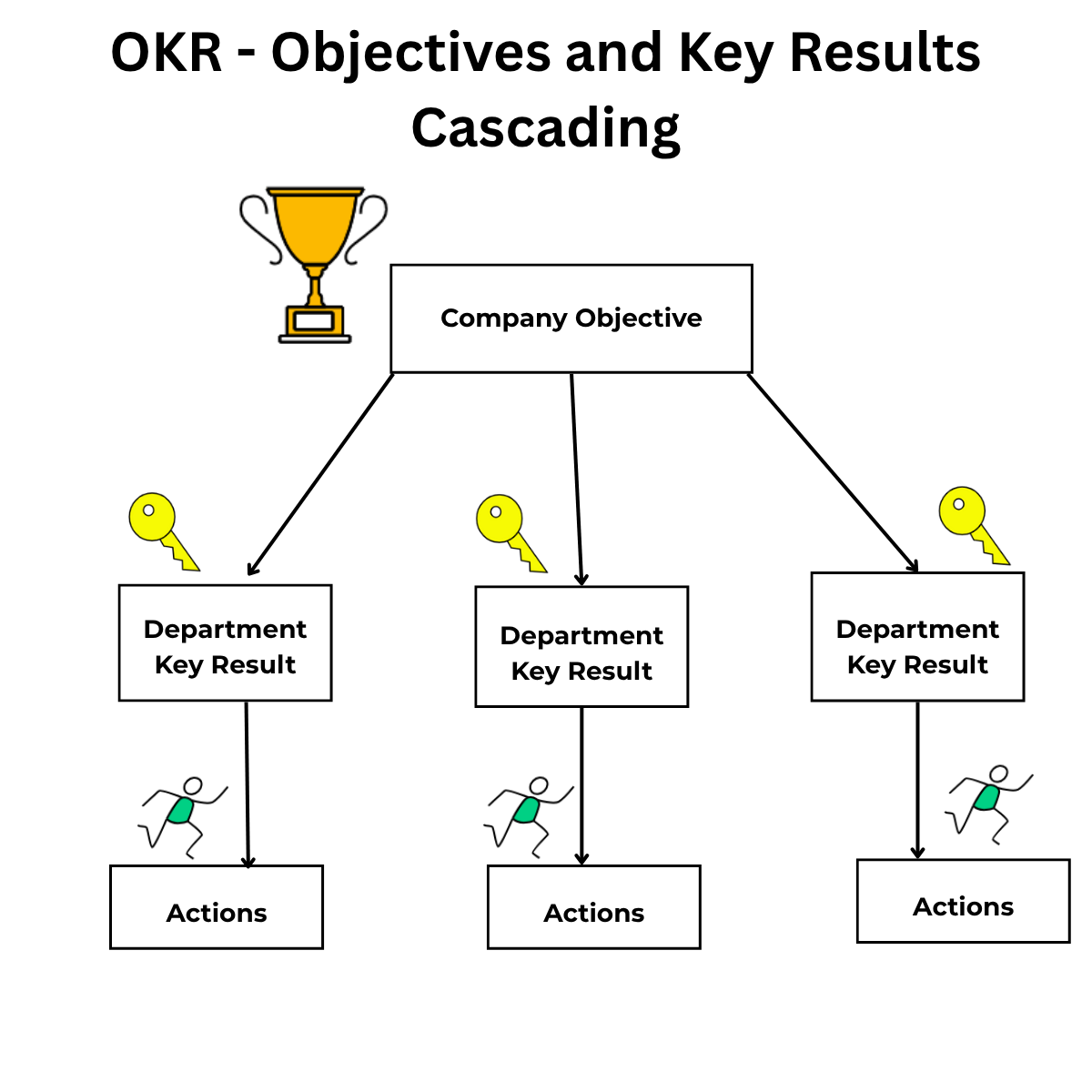
The OKR Framework is a framework pioneered by Andy Grove, the CEO of Intel, in the 1970s. The framework is simple but has been used successfully at many companies, including Intel and Google.
✅ Clarity: Makes teams define what really matters.
🤝 Alignment Across Teams: everyone can see how their contribution leads to common objectives.
📏 Measurable Progress: Key results are easily measured, making it easy to measure progress.
🔁 Agility: Weekly or monthly reviews supports agility and fast responses to actions that aren't effective.
💰 Efficiency: OKRs help reduce wasted effort and misalignment.
🎯 Objective: A qualitative, inspirational goal that sets direction. It answers: "What do we want to achieve?"
📏 Key Results: 3–5 measurable outcomes that define success for the objective. They answer: "How will we know if we’ve achieved it?"
🔗 OKRs create alignment and focus across teams, ensuring everyone works toward shared, measurable goals.

🎯 Objective: Improve Customer Retention
📈 Key Results:
• 🔁 Increase monthly customer retention rate from 75% to 90%
• 📬 Achieve 90% satisfaction score on support tickets
• 📊 Reduce average customer support response time to under 2 hours

🏢 OKRs should cascade from the company level to departments, teams, and individuals. Example:
Company Objective: 🌍 Expand global market presence
📌 Key Result: Launch operations in 2 new countries within 12 months
Marketing Team OKR:
• 📣 Increase international brand awareness
• 🌐 Reach 1M new international users via digital campaigns
• 📥 Capture 50,000 new email leads from targeted countries
Sales Team OKR:
• 💼 Secure new regional partners
• 🤝 Sign 5 new international distributors
• 💸 Close $1M in new international B2B contracts

🧭 Step 1: Define clear, ambitious but realistic objectives
📌 Step 2: Attach 3–5 quantifiable key results to each objective
🔁 Step 3: Align OKRs across departments to ensure focus
📆 Step 4: Review progress regularly (weekly/monthly)
📊 Step 5: Score OKRs at the end of the cycle
🚀 Use OKRs not just to track performance, but to push innovation and clarity across your organization.